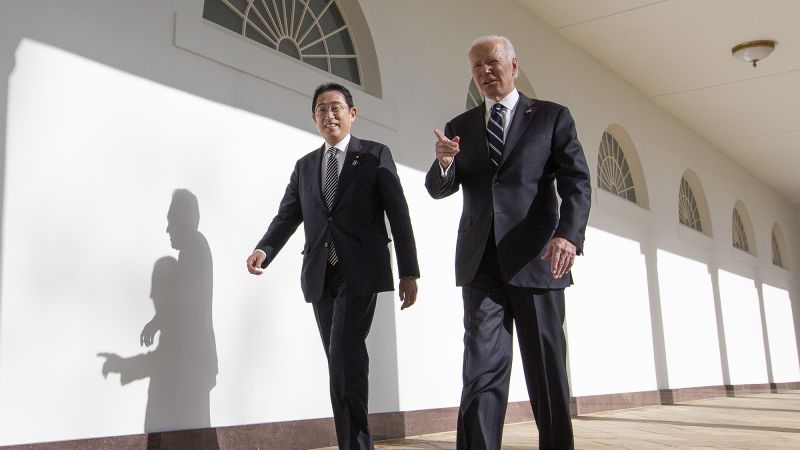President Joe Biden will host the first-ever leaders’ summit between the US, Japan, and the Philippines this week, focusing on strengthening alliances in the face of China’s aggression and nuclear provocations from North Korea. The summit aims to reinforce partnerships in the Indo-Pacific region, with a particular emphasis on investing in alliances and partnerships to benefit the American people, improve safety, and enhance competitiveness on the world stage. The summit will also include an official visit for Japanese Prime Minister Kishida Fumio, highlighting the commitment to cultivating Indo-Pacific partnerships in response to China’s growing economic and military power.
During the summit, major updates to the US-Japan military alliance and defense industrial cooperation are expected to be announced, as well as advancements in artificial intelligence, cybersecurity, semiconductor production, and space collaboration. The leaders will also address issues such as economic differences and ways to increase people-to-people ties. The summit with Filipino President Ferdinand Marcos will focus on infrastructure, energy security, digital connectivity, maritime security, and private discussions on the South China Sea, where the Philippines is facing pressure from Beijing.
The meetings come amid uncertainty over China’s aggressive stance towards Taiwan and the South China Sea, as well as North Korea’s nuclear provocations and its ties with Russia. The shared goal of keeping autocratic power in check while protecting technological prowess is a key theme of the visit. Japan has been at the center of Biden’s alliance building efforts in the Indo-Pacific, with expectations of bolstering the Filipino military’s capability with infrastructure investments to counter Chinese pressure.
The Biden administration has focused on strengthening alliances and partnerships in the Indo-Pacific, including elevating the Quad partnership and enhancing the trilateral relationship between the US, Japan, and South Korea. Efforts to deepen security partnerships with the UK and Australia through AUKUS, as well as engaging smaller regional neighbors like Vietnam, have been ongoing. The administration aims to institutionalize defense, security, and economic advancements with allies to ensure continuity beyond this administration.
As Washington faces a potential change in leadership next year, the importance of alliances like the Japan-US alliance grows even further. Biden continues to explore ways to deepen partnerships with Quad countries, South Korea, and Japan, looking towards the future. The focus on shaping the international order in the Indo-Pacific region remains a priority, with efforts to execute a clear vision for foreign policy that benefits everyday Americans and yields positive results in the region.


